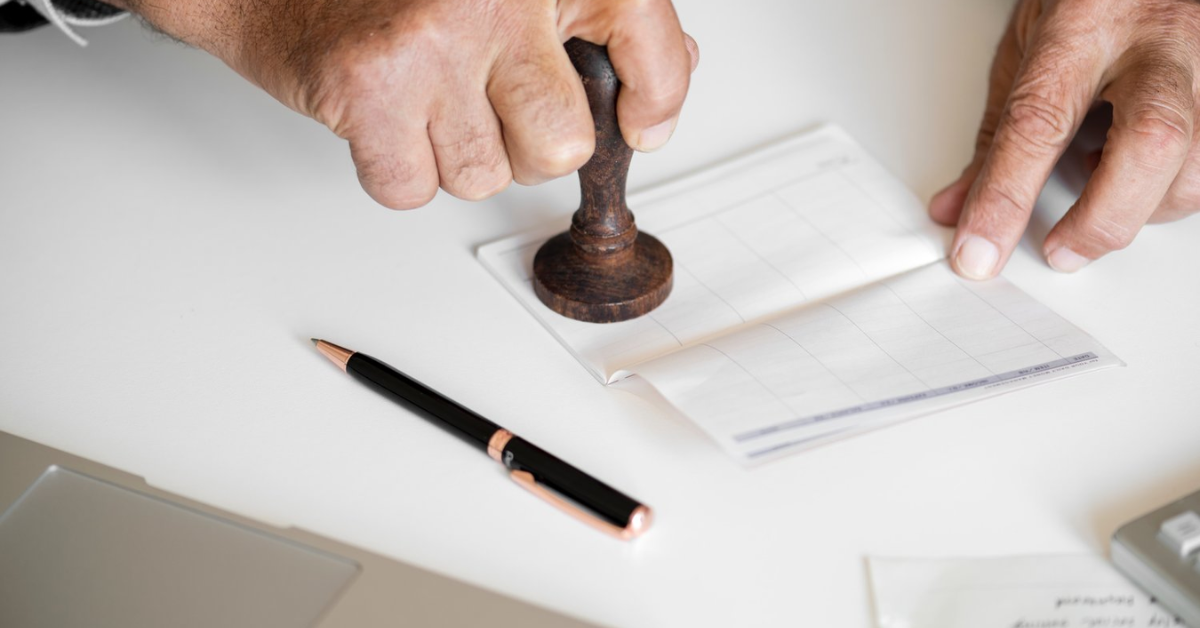Can I Notarize a Document in a Different State from Where It Was Issued?
Navigating notarial laws can be tricky, especially when you’re away from the state where your document originated. If you need to have a signature authenticated but find yourself in another jurisdiction, understanding the rules is crucial. Whether you’re traveling for work or facing an emergency situation, knowing your options ensures your documents remain legally valid. One popular solution is to hire a Mobile Notary who can travel to your location and perform notarizations under the laws of the state where they are commissioned.
When it comes to state-specific requirements, some people turn to specialized services like a Hospital Notary Service when they or a loved one are receiving medical care out of state. Hospitals often partner with notaries who understand both health-care protocols and the particular statutes governing notarizations in that venue. This ensures that urgent medical directives, powers of attorney, or consent forms remain enforceable, regardless of where they were drafted.
Certain settings, such as correctional facilities, demand a distinct approach. A Jail Notary Service specializes in navigating the security protocols and administrative procedures required to enter detention centers. Their expertise allows inmates to notarize wills, affidavits, or other legal documents, even when those papers were issued in a separate state. Understanding these logistical hurdles can save time and prevent costly rejections of improperly notarized paperwork.
Emergencies don’t always wait for convenient business hours or location boundaries. When you need urgent notarization—perhaps for travel consent for a minor or critical financial transactions—a qualified Emergency Notary Services provider can respond at any hour and at virtually any place. They’re trained to handle the nuances of state law on the fly and can advise you on whether your out-of-state document meets local requirements.
If you’re rushing through an airport terminal and realize you forgot to notarize that crucial affidavit, you can often find relief via Airport Notary Services. Major international and regional airports sometimes host commissioned notaries in business lounges or designated service areas. These professionals are well-versed in cross-state notarization challenges, helping you finalize documents before boarding your flight.
Understanding State Jurisdiction and Notarial Acts
Every notary public is commissioned by a specific state government, granting them authority to perform notarial acts within that state’s borders. If you present a document issued in State A to a notary in State B, the notary will notarize under State B’s laws. This distinction is vital: the notary’s seal represents their commissioning state, not the origin state of the document. Legally, the witnessing and authentication process must align with the rules of the notary’s jurisdiction.
Reciprocity Agreements Between States
Some states have reciprocity or acknowledgment agreements, recognizing notarizations performed by notaries from sister states under certain conditions. These arrangements simplify matters when dealing with multistate real estate transactions or business contracts. To leverage reciprocity, you often need an apostille or certificate of authentication from the origin state’s secretary of state. That additional certification vouches for the validity of the notary’s commission, ensuring that the notarized document remains enforceable across state lines.
Remote Online Notarization (RON)
The rise of Remote Online Notarization (RON) has added a digital dimension to interstate notarizations. Under RON, signers authenticate their identity via video conference, and documents are notarized electronically. Although the notary’s commission still belongs to a specific state, RON often allows signers in other states to participate, provided both states have adopted compatible RON statutes. Before choosing this route, verify that your document type is eligible for RON and that your state recognizes out-of-state electronic notarizations.
Exceptions and Special Circumstances
While most notarizations adhere strictly to state boundaries, certain scenarios warrant exceptions or specialized handling. Knowing these can prevent last-minute complications.
Role of Specialized Notary Services
Services such as Mobile Notary, Hospital Notary Service, Jail Notary Service, Emergency Notary Services, and Airport Notary Services have carved niches to address out-of-state notarization challenges. Their notaries are equipped with up-to-date knowledge of cross-jurisdictional laws and can advise on whether additional authentication—like apostilles—is necessary. They also maintain relationships with foreign consulates and state offices, streamlining the process when documents will be used internationally.
Apostilles and Authentication for International Use
If your document will cross not only state but national borders, you may need an apostille. This certificate, issued by the state’s secretary of state, verifies that the notary’s signature and seal are genuine. After an apostille, foreign authorities accept your documents without further legalization steps. While apostilles are state-specific, specialized providers can often facilitate the entire chain of custody—from notarization out of state to apostille certification.
Corporate and Real Estate Transactions
Large-scale transactions, such as corporate mergers or real estate closings, often involve documents issued across multiple states. Title companies and legal teams typically require uniformity in notarization. In these cases, hiring a notary familiar with multistate requirements—often through a national notary network—ensures consistency. These professionals can guide signers to appropriate RON platforms or coordinate with local agents to produce a notarization that meets all jurisdictional demands.
Best Practices When Notarizing Out-of-State Documents
Taking proactive steps can mitigate risks and delays. Follow these guidelines for a smooth notarization process:
-
Verify Notary’s Commission: Always confirm that your chosen notary holds a valid commission in the state where you’re signing.
-
Check Document Type Eligibility: Some states restrict certain documents—like wills or deeds—from being notarized remotely or by out-of-state notaries.
-
Prepare Identification in Advance: Notaries require government-issued photo ID. Ensure you bring the correct form accepted by your commissioning state.
-
Request Additional Certifications Early: If you anticipate needing an apostille or county clerk authentication, start the process before your document’s deadline.
-
Retain Copies of All Seals and Certificates: Keep a record of the notary’s seal impression and any certificates for future reference, especially if the document may be contested.
Conclusion
While notarizing a document in a state different from where it was issued introduces additional steps, it is entirely possible with the right approach. By understanding state jurisdiction, leveraging advances like RON, and enlisting the help of specialized providers—such as Mobile Notary, Hospital Notary Service, Jail Notary Service, Emergency Notary Services, and Airport Notary Services—you can ensure your documents remain legally binding. Always plan ahead, confirm eligibility, and secure any necessary authentication to navigate the complexities of multistate notarization successfully.







